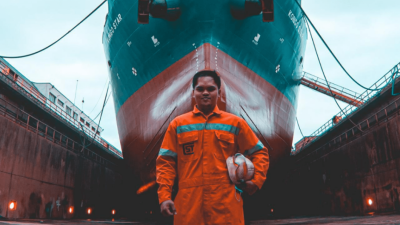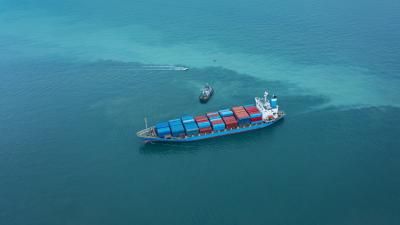
Training seafarers for a decarbonised future
Maritime Just Transition Task Force collaborative project sets framework to equip seafarers with skills as shipping transitions to zero emissions.
This page is approximately a 2 minute read
This page was published on

Ahila Khan, Senior Lead Green Initiatives, Lloyd's Register Maritime Decarbonisation Hub
Ocean health is the beating heart of climate resilience, food security, and global trade. As the vision of a sustainable ocean economy gains momentum, we’re proud to continue standing alongside the UN Global Compact and UNEP Finance Initiative as a knowledge partner in the Ocean Investment Protocol. It’s a vital tool to guide sustainable finance toward a resilient, regenerative, and inclusive ocean economy.
The Protocol sets out a practical route for aligning capital with nature- and climate-positive outcomes. It empowers financial institutions, governments, ocean industries, and development partners to mitigate environmental risks while unlocking growth across blue economy sectors.
At the Decarb Hub, we believe that decarbonising maritime transport must be central to any sustainable ocean economy. With global shipping carrying over 90% of the world’s goods, we’re working to ensure that investments in fuels, infrastructure, and seafarer skills are grounded in science, safety, and a just transition for all.
Shipping will require trillions in investment by 2050 to transition to sustainable fuels and vessels. This transformation depends on private capital markets and catalytic public finance to create viable markets for new fuels and infrastructure.
We and our investment communities must consider the wider value proposition and co-benefits of investing in shipping's decarbonisation - not just for the maritime sector, but for portfolio resilience, climate risk mitigation, and broader economic spillovers. This will help align incentives towards mobilising financing for a sustainable sector-wide transition.
The Protocol is a starting point: if pension funds, development funds and investors align around shared principles, we can coordinate the financial flows needed to transform this sector.
Financing a sustainable ocean future begins now – with shared ambition, practical tools, and a common purpose.
